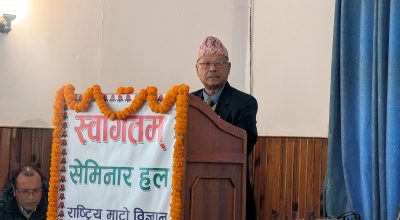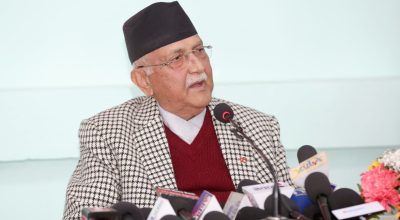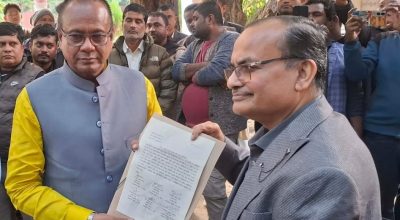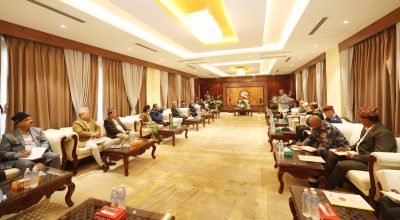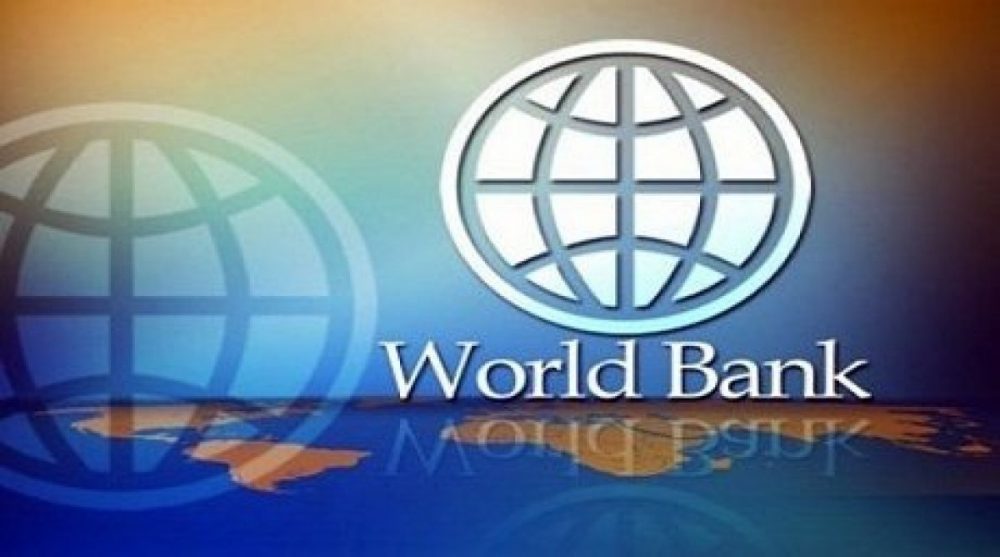
KATHMANDU: The Government of Nepal signed a landmark agreement with the World Bank’s Forest Carbon Partnership Facility (FCPF), under which Nepal will get US$45 million to support in decreasing carbon emissions from deforestation and forest degradation through 2025.
With this Emission Reductions Payment Agreement (ERPA) in place, Nepal is expected to reduce nine million tonnes of carbon dioxide emissions in the Terai Arc Landscape. The agreement was signed by the Secretary of the Ministry of Forests and Environment, Dr. Bishwa Nath Oli on behalf of the Government of Nepal, and the World Bank Country Director for Maldives, Nepal and Sri Lanka, Mr. Faris Hadad-Zervos on February 24.
“This scale of results-based payments for emission reductions is a first for Nepal,” said Finance Secretary, Mr. Sishir Kumar Dhungana.
“Nepal’s Emission Reductions Programme builds on more than three decades of successful community forestry,” said Faris Hadad-Zervos, World Bank Country Director for Maldives, Nepal, and Sri Lanka. “The emissions reduction purchase is one pillar of a strategic program on forest landscapes and climate action in Nepal. This innovative financing agreement will address the drivers of deforestation and forest degradation, helping incentivize further community action across the country.”
Nepal’s Emission Reductions Programme in the Terai lowlands aims to lower rates of deforestation and forest degradation across 2.4 million hectares of land rich in natural resources, including 20% of the country’s forest cover. The Terai region supports some of the most productive forests, richest biodiversity and most significant protected areas in Nepal.
The region also has the highest population growth, urbanization, and economic development in the country, especially agriculture. As a result, natural resources in the Terai face significant threats that the emission reduction program helps address, the Ministry stated in a press release today.
This initiative will also focus on improving community-based forest management, transferring user rights for national forests to local communities, improving integrated land use planning, promoting alternative sources of energy and strengthening capacity for protected area management.
“Forests in the Terai region provide ecosystems services that are critical for climate resilience, including watershed protection, and drought and flood mitigation,” says Dr. Bishwa Nath Oli, Secretary for Nepal’s Ministry of Forests and Environment. “This program will help us to protect the forests that are inextricably linked to the well-being of many communities here and across the country.”
This programme also leverages support from other World Bank support on sustainable land management and social inclusion, and builds on complementary efforts financed by the Climate Investment Funds’ Forest Investment Program and the Dedicated Grant Mechanism for Indigenous Peoples and Local Communities.
Nepal is the fifth country in Asia-Pacific and twelfth globally to reach such a milestone agreement with the FCPF, which together have unlocked over US$600m in results-based financing. Emission Reductions Payment Agreements are innovative instruments that incentivize sustainable land management at scale and help to connect countries with other sources of climate financing. Funding from the FCPF supports new opportunities to conserve and regenerate landscapes and biodiversity while simultaneously supporting more resilient, inclusive, sustainable and efficient economic growth – key for Nepal to build back better, and greener.
The World Bank’s Forest Carbon Partnership Facility (FCPF) is a global partnership of governments, businesses, civil society, and Indigenous Peoples’ organizations focused on reducing emissions from deforestation and forest degradation, forest carbon stock conservation, the sustainable land use management, and the enhancement of forest carbon stocks in developing countries, activities commonly referred to as REDD+.
Launched in 2008, the FCPF has worked with 47 developing countries across Africa, Asia, and Latin America and the Caribbean, along with 17 donors that have made contributions and commitments totaling US$1.3 billion.





